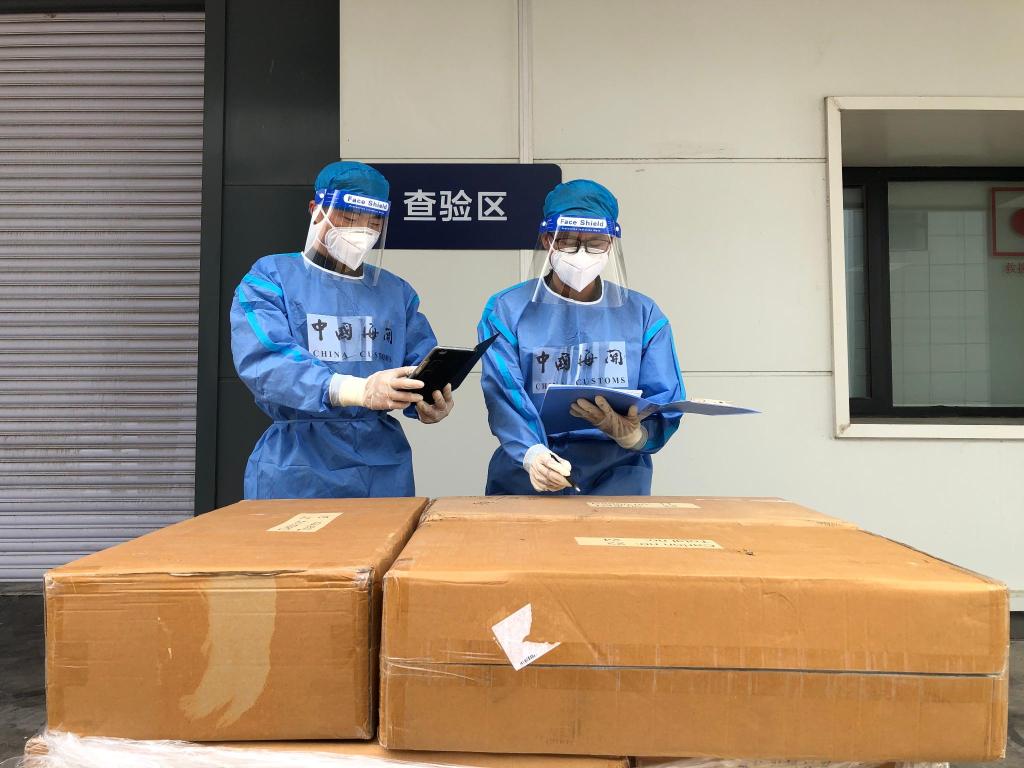Professional education informatization next stop: Digital technology from auxiliary to deep application
Author:China Renmin Socialary Media Time:2022.07.19
The "Vocational Education Information Information Development Report (2021)" shows that 74.54%of vocational teachers said they would often use multimedia equipment such as computers, projectors, and electronic whiteboards. In addition to multimedia equipment, the curriculum resources in the online teaching platform are also favored by teachers. More than half of the teachers will normalize the curriculum resources of the online teaching platform.
Recently, the "Professional Education Information Information Development Report (2021)" (hereinafter referred to as the "Report") was officially released. The "Report" is based on more than 995 vocational colleges, more than 8,000 teachers and nearly 150,000 students in the east, central, western and northeast regions, and analyzed the current status of vocational education information development from multiple dimensions. The "Report" was guided by the Department of Education and Adult Education of the Ministry of Education, and jointly compiled by the Tsinghua University Education Research Institute and the Informatization Teaching Guidance Committee of the Vocational College of the Ministry of Education and Tencent Education.
Dong Zhenhua, deputy director of the Teaching and Quality Division of the Department of Education and Adult Education of the Ministry of Education, pointed out at the press conference that the core of informationization of vocational education should still promote the co -construction and sharing of digital resources around the professional and curriculum characteristics of vocational education. In particular, to expand the use of resources, deepen the innovation of education and teaching models, and focus on promoting traditional teaching with information technology.
Informatization teaching is gradually normalized
The "National Vocational Education Reform Implementation Plan" requires vocational education to "adapt to the development needs of 'Internet+vocational education', and use modern information technology to improve teaching methods and methods" to provide new ideas for information support to lead vocational education modernization.
In March of this year, the National Vocational Education Smart Education Platform was launched, including four major sectors: professional and curriculum service centers, textbook resource centers, virtual imitation training centers, and teacher service centers. In the words of Chen Ziji, director of the Department of Education and Adult Education of the Ministry of Education, it not only meets the needs of digital resources for teachers' system education and student system learning, but also serves professional construction and teaching reform of vocational colleges.
This is also an important step for accelerating the digitalization and information construction of vocational education.
The "Report" also pointed out that overall, students with information technology support are more normalized. The proportion of students who often look at learning materials online are as high as 84.83%. In addition, the proportion of students who often use "seeing learning materials", "submit homework", "watching live class" and "testing questions" have also exceeded 50%of students online.
The teacher is also embracing digital technology. The "Report" shows that 74.54%of vocational teachers said they would often use multimedia equipment such as computers, projectors, and electronic whiteboards. In addition to multimedia equipment, the curriculum resources in the online teaching platform are also favored by teachers. More than half of the teachers will normalize the curriculum resources of the online teaching platform.
Han Xibin, editor -in -chief of the "Report" and deputy dean of the Institute of Education of Tsinghua University, pointed out that with the gradual normalization of informatization teaching, the impact of informatization on teaching behavior has also "advanced". The supporting role of information technology on the teaching of vocational colleges has been from helping teachers to successfully achieve the "advanced" teaching design to improving teaching personalization and teaching quality. "It is gradually becoming a reality to improve the quality of education through education information and build high -quality classrooms." He said.
Virtual imitation training "praise rate" exceeds 90%
The integration of production and education is a key link in the development of vocational education. This link involves a large number of training teaching. The scene is complicated, the character interaction is large, and the personalized needs are more prominent than ordinary education.
Traditional training teaching requires the school to invest a lot of funds to introduce equipment to build a training room or training base. Students are concentrated, the training time is limited, and the training content cannot be reviewed. Students' observation and teacher teaching effects are not stable enough. In addition, during the training process, it will inevitably avoid problems such as equipment loss and safety risks of real estate. Therefore, virtual imitation training has become the direction of many vocational colleges.
Liaoning Railway Vocational and Technical College has a provincial -level boutique course- "Mixed Teaching of the Safety and Efficiency of Car Regulatory Works". The operation of this course involves the safety of the railway. The required training equipment is large, cost -effective, and high operating risks. In order to solve these problems, the college introduced virtual imitation training technologies, relying on school -enterprise to build the basic skills training room of the car, and created a workplace teaching situation close to the actual work of the post. Through virtual reality technology, students can personally experience the operations of vehicle throwing, vehicle anti -slip, and hosted pipes.
The "Report" shows that only 3.82%of vocational school students have not used virtual imitation training software, and students who have used their use of virtual imitation training software have a greater sense of recognition. The number of people exceeds 90%.
However, when investigating the application of digital education resources, the "Report" also found that 12.55%of students admitted that they did not use virtual simulation experimental software, and 42.2%of the teachers who were interviewed had never used virtual imitation training environment to carry out teaching activities to conduct teaching activities. Essence
Han Xibin believes that virtual imitation training is a new training method for vocational education. It will not completely replace physical training, but it can replace some physical training and should become the development direction of the next step in information teaching reform.
Teachers and students must do "lifelong learners" in the information age
However, the research team of the "Report" also found some problems.
From the results of the questionnaire, it can be seen that when teachers and students of vocational colleges use information teaching platforms, they use functions such as "homework submission" and "watching back". In the "auxiliary" effect, it did not achieve the level of "fusion". In other words, from the perspective of teaching, the in -depth application of information technology in teaching needs to be further expanded. "Moreover, many new technologies have not exerted their due potential in innovative teaching models and improving the quality of teaching. . "Han Xibin pointed out that the lack of practicality, low appropriateness, and low ease of use of information teaching resources are still the prominent problems in the construction of informatization teaching resources in vocational colleges.
In addition, teachers' information teaching ability should also be paid attention to.
The "Report" pointed out that 36.6%, 48.1%, 49.2%, and 47.7%of the teachers of the survey were not familiar with 5G technology, virtual reality/augmented reality technology and related tools, artificial intelligence technology, and industrial Internet. In general, the level of emerging information technology tools for teachers still needs to be improved, and the innovation of teaching models based on information technology is not enough.
Han Xibin suggested that teachers, like students, must establish a lifelong learning concept, reshape the learning thinking of the era of information, and change from "learning with technology" to "learning from technology"; at the same time, schools should improve students' self -management ability, Cultivate lifelong learners in the information age.
Song Xianjun, deputy secretary of the party committee and dean of Lanzhou Vocational and Technical College, emphasized that the next development of vocational education informatization should achieve three points: focusing on talent training goals, deepening production and education integration, school -enterprise cooperation, and building high -quality classrooms; surrounding students' needs To realize the personality of learning resources and explore the in -depth nature of classroom interaction; focus on the improvement of the overall information literacy of the manager, deepen the continuous transformation of management service models, and achieve the normal development of teachers and students' information technology applications.
In order to provide teachers and students with richer and more available teaching resources, Han Xibin also suggested that we must enrich the supply of digital resources and improve the resource operation mechanism of sharing sharing. For example, to promote the construction of a national vocational education professional teaching resource library, guide various vocational colleges in various places to develop virtual imitation resources and personalized autonomous learning systems based on the workplace environment and work process. Participated in digital education resources co -construction and sharing platforms, service curriculum development, teaching design, teaching implementation and teaching evaluation.
Source: Science and Technology Daily
- END -
Dalian City's clear heating fee subsidy payment standard

Morning News (Peninsula Morning News, 39 -degree video reporter Su Lin) The Dalian...
Precise "glue", Qingdao Jiaodong Airport Customs Guarantee high -tech industry raw materials import

Fengkou Finance reporter Wang Beibei correspondent Pan XincongOn July 13, after pa...